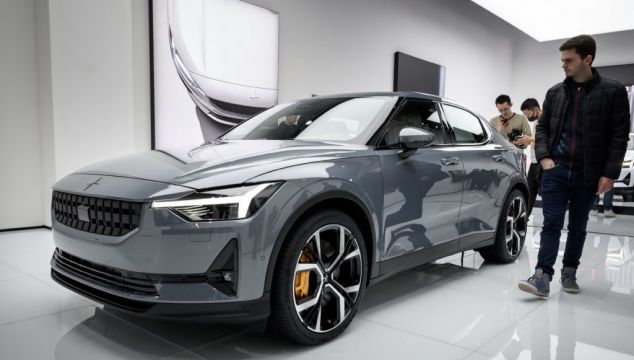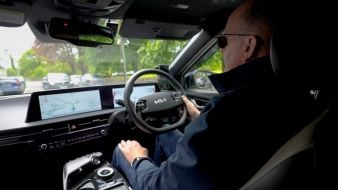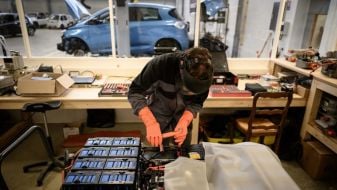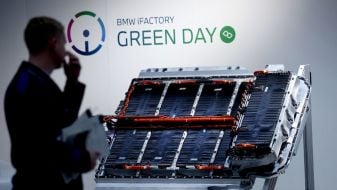The move to agency sales is on. BMW (along with Mini) has become the biggest brand in Ireland, thus far, to announce a move to agency sales, following newcomer rivals such as Polestar and Tesla are already there. But what does it all mean for the consumer?
At present, the dealer you buy your car from has had to buy that car first. The dealer buys their new car stock, at wholesale cost, from the manufacturer. That manufacturer issues a recommended retail price, but at the end of the day it’s up to the dealer how much they’re going to charge for it, and what kind of discount they might offer you, the car buyer, on it.
That’s how it’s worked since ages past, and it’s why people still feel that have to ‘haggle’ on the price of a new car. Even with scalpel-thin dealer margins on new car sales, there’s still a chance that a dealer might give you a few euro off.
So that’s how the traditional franchised car dealer model has always worked — you’re buying from a business which has bought its stock from another business.
New 'Agency' sales model
Agency sales does away with that. Under an agency sales model, you’re actually buying your new car direct from the company that makes it, and usually at a set, haggle-free price. The dealer, in this instance, becomes an agent, a middle-man, who simply facilitates the delivery and handover the car to you.
Instead of turning a profit on the sale, under an agency agreement, the dealer will be paid a flat fee per car delivered, and in most cases an overall contract fee to be an exclusive agent for the car maker in question.
So how does this affect you, the consumer? Well, in theory, it shouldn’t make an enormous difference overall. You’re still buying your new car, and still picking it up from the same dealer premises you would have gone to before.
The difference is that you’ve probably done most of your buying online. Increasingly, car buyers are not visiting dealerships to browse their stock and get advice — that legwork is now being done on a keyboard or a touchscreen, and most new car buyers have made their mind up what model they’re going to buy long before they cross the threshold of a dealership.
The agency model, from the consumer’s point of view, just takes that to the next logical level, and does away with the dealing and haggling part. The price you see on the website will be the price you pay for your car.
No more haggling
According to a UK-based study by What Car? magazine, consumers seem to vastly prefer this setup, liking the clearer pricing and the lack of haggling. Indeed, only 24 per cent of those surveyed actively liked the process of trying to get a discount.
We have to follow where the customer goes, so that makes this an inevitable change
Denis Murphy is the managing director of Blackwater Motors, a dealer group based in Cork, and he told BreakingNews that “It’s the customer’s choice, the customer’s requirements that are driving this change.
"People want to have the ease of the Amazon experience, or the Apple experience when they’re buying a car. So we have to move into that space, into that online experience of buying a car, and when you do that you have to have a fixed price, you have to have transparency in the pricing model, and that’s where an agency setup comes in.”
Murphy says that, Irish consumers being who they are, a kind of hybrid model between the traditional dealership and an agency model is likely in some cases — with cars being such an expensive purchase, he feels that they’ll still want to come and see and try the car first before making a final decision — but that ultimately this is about following the demands of the customer. “I suppose there’s a question as to whether the Irish market is big enough to move everyone to an agency model” said Murphy. “But we have to follow where the customer goes, so that makes this an inevitable change.”
Polestar model
At the other end of this tale, Polestar — once Volvo’s high-performance brand, but now a fully-fledged marque in its own right — has been one of the pioneers of the direct-sales, agency model in Ireland. “Polestar is a direct to consumer brand, this means that Polestar is the distributor and the retailer” Kieran Campbell, Irish market lead for Polestar, told BreakingNews.
“Polestar has a retail partner, Spirit Motor Group. Spirit provides staff for, and manages the retail space in Sandyford in south Co Dublin, known as Polestar Dublin. What this means for customers is transparency and simplicity. The full transaction happens digitally and seamlessly and the car can be ordered from the comfort of your own home by configuring the Polestar you want, pay a €1,000 reservation fee and the order is complete and can be handed over within two weeks.”
It’s not all driven by customer demand, though. In many ways, the shift to an agency model is being driven from the car maker’s end of things, as there has been a long-held perception that dealer profit margins could become car maker profit margins, and the agency fee paid to dealers would be a more controllable, predictable cost.
Basically, car makers want to either take out entirely, or at least reduce as much as possible, the cost of doing business. It’s reckoned that the agency model will actually see fewer physical car dealerships, each selling more cars, which would reduce the costs of shipping as well as the cost of agency fees.
Competitive pricing
It’s here that there is some danger for the consumer. Under the old dealer franchise model, you had two levels of competition on pricing. At the higher level, car makers would price their cars to be competitive with rivals, and then — at the point of sale — car dealers could further price cars, and offer discounts, in line with other dealerships in the area.
You might get a better price on a new car if, for instance, you were a regular customer of a particular dealership. The dealer might take the view that because you’ll be back in for servicing and will probably come back again in three or four years’ time for another car, you’re worth an extra percentage off the price.
Under an agency model, this sort of loyalty bonus won’t go away entirely, but it will become trickier, and based more around the price you’re being offered for your trade-in than on the price of the new car.
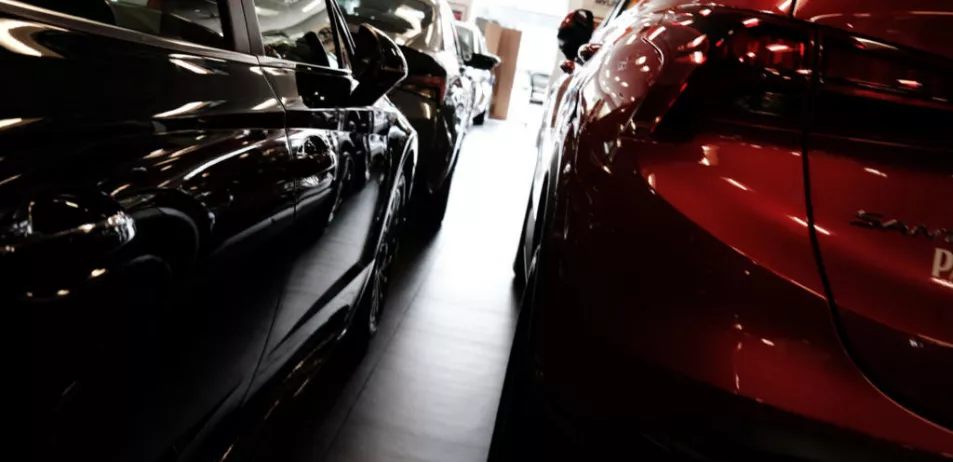
In Ireland, the Competition and Consumer Protection Commission (CCPC) is watching rise of the agency model carefully, noting that: “The benefits of the agency model for consumers are generally seen to be the fixed consistent price can give consumers more confidence that what they are paying is fair, and it provides a better indication of value.
"However, it also means that there is no opportunity for consumers to negotiate on price or to shop around for better value.
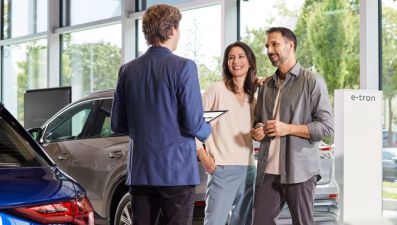
“It is not yet clear what the long term impact of agency models will be on the second-hand car market and how it may affect consumers who part-exchange cars as part of a sale,” said a spokesperson for the CCPC. “It may result in greater choice in the second-hand car market where manufacturers may get dealers to use their forecourts for the storage and resale of traded in vehicles, rather than selling on through other channels. Variations in the approach to part-exchange could also mean consumers would be able to shop around for a better deal for that aspect of their purchase.”
Not everyone thinks that the agency model is inevitable, however. At the recent Car Dealer Live conference in the UK, MG’s commercial director, Guy Pigounakis, said that he thinks this is being driven by greed on the car makers’ part, and that alone dooms it to failure: “I do think it’s a margin grab and I don’t think manufacturers realise the depth of job and commitment dealers have, especially in the aftersales arena. I think as long as manufacturers are arrogant enough to think that way, I think the agency models I’ve seen by and large will fail.”
Not all car brands in Ireland are going to go with agency models. The huge Gowan Group, which now imports Peugeot, Citroën, DS, Opel, Fiat, Jeep, Alfa Romeo, and Honda, has said that it’s not looking at an agency model yet, and nor is Mercedes-Benz, Land Rover, nor newly-arrived Chinese giant BYD. There’s still life in the old franchise dog yet, it seems.
Ultimately, the consumer will decide because they will go with the sales model that suits them best, and dealers and car makers will have to follow. Does that make an agency model inevitable? Only the bottom line will tell.
